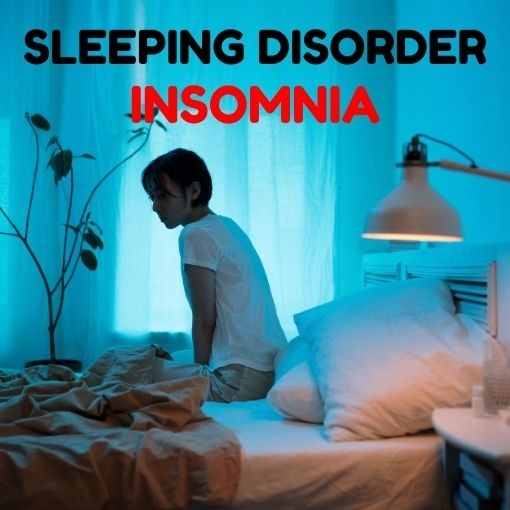
Have you ever had sleepless nights? Going sleepless for days because of feeling overburdened with work or some other stressful situation comes as a temporary phase. People catch up on their sleep soon after the strain gets off their shoulders and resume the healthy sleep cycle. However, if you usually face the issue of being an insomniac for days and it keeps on happening in episodes, it means you need help to overcome it. Insomnia is a very serious issue since it affects your mind, body, and soul. Being sleepless or taking less sleep than is required leads to not just serious mental issues but also worsens the quality of life.
Insomnia is defined as sleep deprivation- caused by both reduced sleep quantity and quality, that significantly impedes individuals’ daily life functioning. There are over 70 different types of sleeping disorders, but insomnia is one of the most common and most severe. It can cause irritability, fatigue, disrupted concentration and memory, trigger physical sickness, induce a state of “mental fog”, and decrease productivity.
Individuals may find that their insomnia is a combination of the three, or that it chops and changes over time. They may also experience insomnia on and off in bouts, with some weeks worse than others.
Extensive research has found that around one-third of adults experience insomnia, with around 50% of these chronically. Other research has estimated that almost 60% of adults experience insomnia at least two nights per week. However, it is important to understand that insomnia is not simply diagnosed based on the duration or quality of sleep, it is when these factors begin impacting their daily life functioning, that problems arise.
ACUTE INSOMNIA
Acute insomnia lasts from a few days up to a month. It can either be transient (lasting a few days) or short-term (lasting up to 3-4 weeks).
Common causes for acute insomnia:
CHRONIC INSOMNIA
Chronic insomnia is indicated when insomnia persists longer than one month, usually well after the original triggering factor has been resolved or has significantly faded in thought domination. Acute insomnia develops into chronic insomnia when a combination of factors combine, including periods of increased stress or worry, anxiety about lack of sleep, and abnormal behaviours around sleeping that become habits. Often when these occur, individuals develop negative thought patterns and associations with sleep and bedtime, such that the thought of sleeping itself becomes a learned cue, triggering wakefulness. This is when individuals usually begin to partake in a variety of behaviours, in a bid to help alleviate their insomnia, which unfortunately, over time, reinforce and perpetuate insomnia.
Some of these thoughts and behaviours include:
Thinking that sleep can be “forced”
Taking naps throughout the day
Trying to go to bed early or sleeping in to catch up on sleep
Reducing or ceasing physical exercise due to feeling too fatigued
Consuming substances such as alcohol to induce sleep and caffeine to cope with fatigue during the day
Engaging in activities in bed (before planning to sleep) to try and promote sleep (such as watching a movie or reading)
Thinking that insomnia can be cured by external factors
NATURAL THERAPY ONLINE LIVE SESSIONS
Get free from Insomnia & Live a healthy, wealthy, and happy Life.
All Types of SLEEPING DISORDERS can be cured through natural healing therapy
The first step is consultation with the client
First Consultation (30 minutes): Information is taken regarding the client's situations, and factors leading to anxiety (find out the real root cause leading to Insomnia). Awareness is built about Insomnia and its effects. The first consultation will help us to identify the client's negative thought Patterns, Emotional levels, Post post-traumatic stress disorder, etc.
Also, it will help us to identify which approach is best for each client based on their unique personality type.
All our techniques and therapies are 100 % effective.
Negative Emotion Breaking Technique
Reprogramming of Emotional patterns
Internal and External Tigger Control
Vagus Nerve Relaxation
Special Exercises that will help to balance Neurotransmitters
Stress Relief Techniques
Laughter Therapy - Learn to Laugh. it will help to release happy chemicals and endorphin.